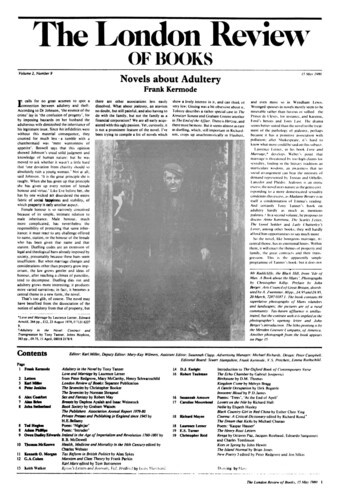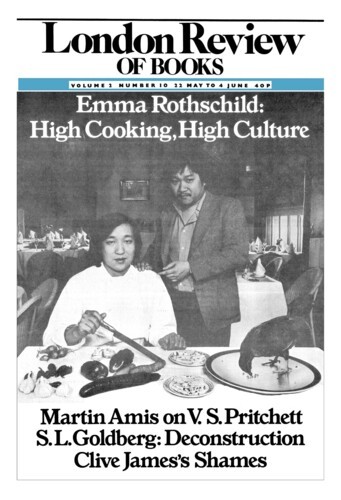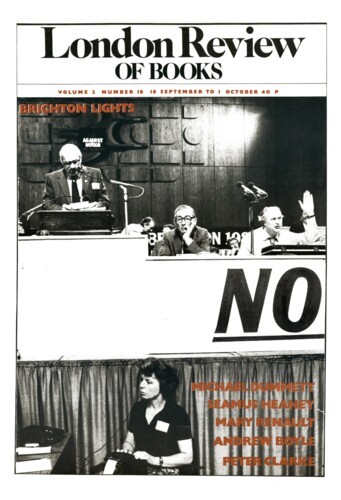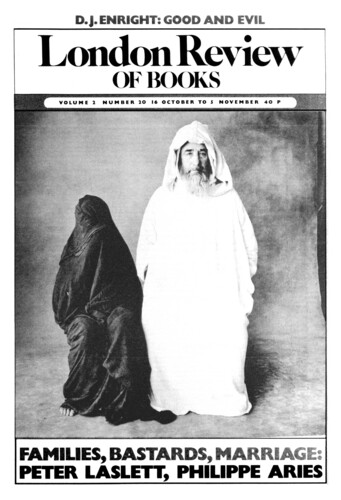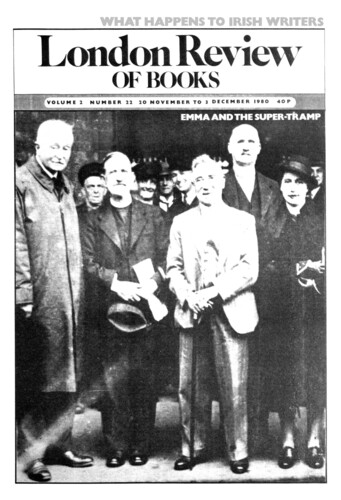London Review of Books: Separate Publication
Karl Miller, 15 May 1980
The first issue of the London Review of Books appeared on 27 September last year, and the present issue is the 14th we have produced. The journal was started when some newspapers were in abeyance, and others had taken to cutting back on the space allowed for the discussion of books. Publishing houses were rumoured to be in financial difficulty – such as Penguin, and Collins were presently said to have become ‘over-heated’ in Australia. Publishers were felt to be peculiarly exposed to the fortunes of the economy, and the country, for all its oil rigs, was felt to be keeling over. It is still felt to be keeling. But the absent newspapers have resumed. Publishing houses have righted themselves. And it is also the case that the whole British rig has yet to descend into the North Sea.
